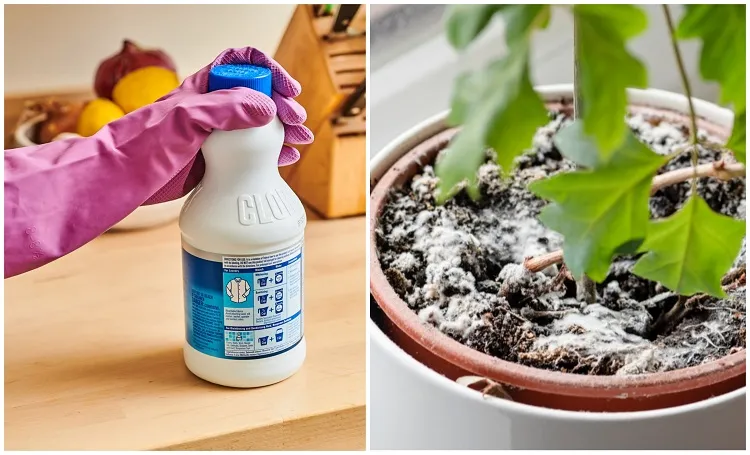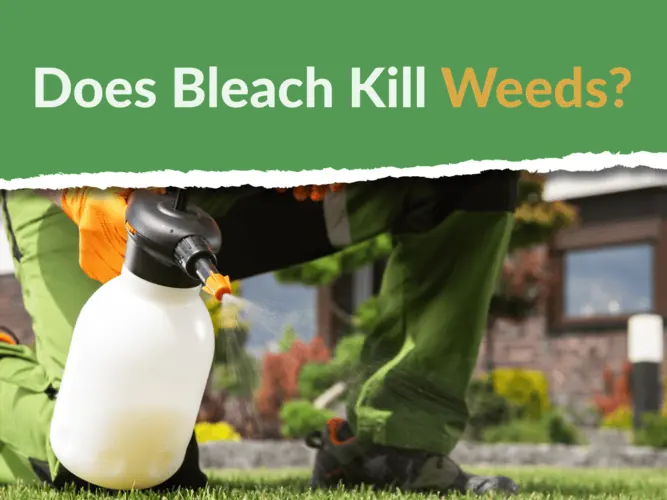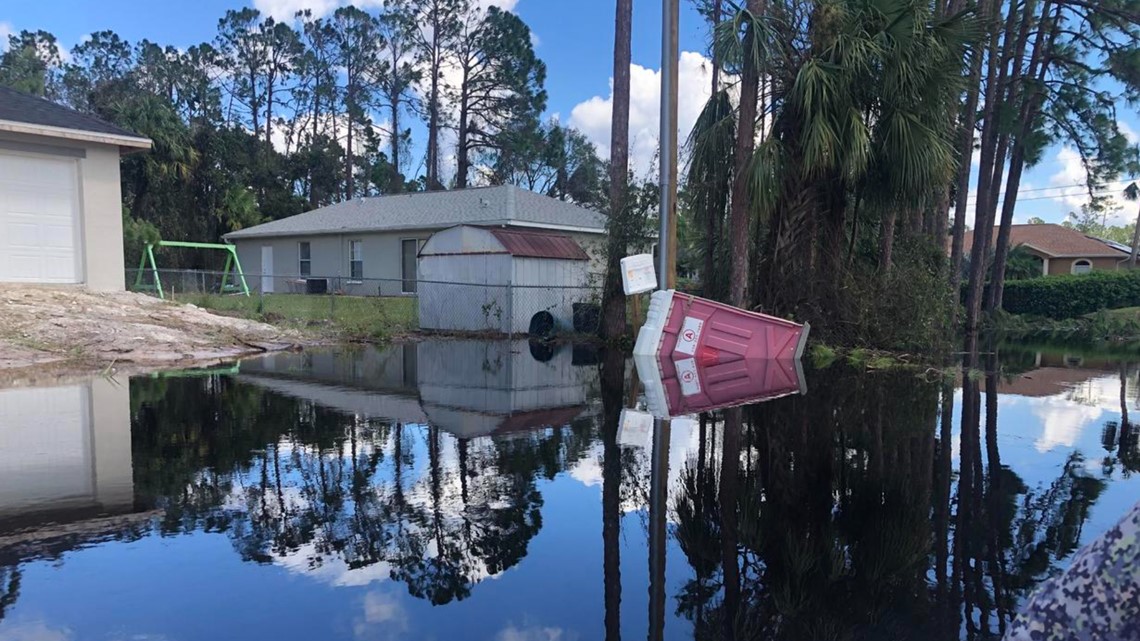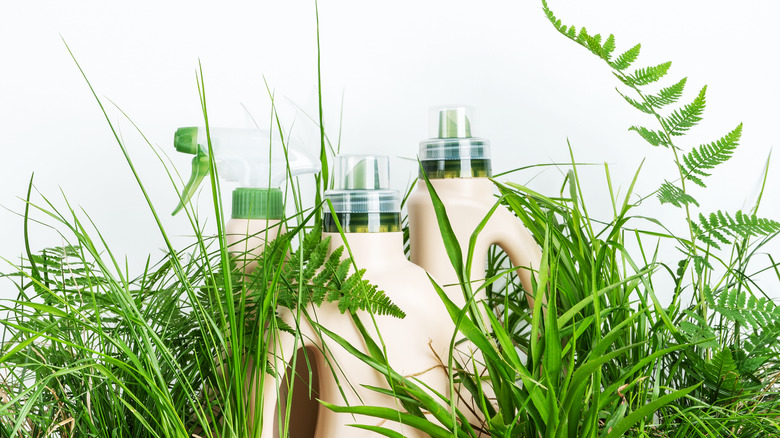19+ Does Bleach Kill Plants
In a neat form it will kill plants but even watered down it can cause irreversible damage to plants shrubs and trees. It will damage the leaves and potentially kill the plant.

Is Pouring Bleach On Flowers And Plants A Good Idea Yes And Here S Why
Chlorine bleach is commonly thought of as a laundry additive rather than something to use in the garden.

. The sodium hypochlorite solution is highly toxic undiluted. Written by Kremena Ruseva Published Jan 11 2023 1636 A versatile whitener stain-removing and disinfecting product bleach is very effective for cleaning the bathtub sanitizing appliances and whitening laundry. Keep cut flowers looking.
Dispose of bleach after use by pouring it down the sink. So yes diluted bleach can kill plants. I also doubt that you will pollute the soil below your plants.
Adding some beautiful bushes can enhance the beauty of a garden or street. Web In my opinion anything more dilute than 110 would not harm your plant foliage. But if you accidentally sprayed bleach on plants they may suffer from chlorine toxicity and may die.
Web Yes bleach will kill a houseplant unless it has been extremely diluted before it is added to the plants soil. However bleach is also very corrosive and will damage your soil if used too frequently. First the sodium content overloads the plants system with salts.
There are better ways to get rid of weeds and unwanted plants in. Chlorine is used to kill bacteria viruses. It corrodes metal and not recommended for pruning and cutting tools that require a sharp edge as it can create pits and nicks in the metal.
Web Yes Clorox outdoor bleach will kill plants. Web Quick Ways to Kill Plants Trees By Ticara Gailliard When weeds invade a garden quick fixes may be necessary. It will also bleach all clothing.
It damages the roots and kills healthy microorganisms in the soil which results in the death of the plant. They are frequently used for cleaning and disinfection. If applying to the skin use a cotton ball to dab the solution over the poison ivy.
Web Jonae Fredericks Chlorine bleach is used in many households as a disinfectant and as an effective cleaning solution. Learn how bleach can stop the spread of fungal disease in plants and breathe new life into your garden and backyard. Bleach will not only affect plant growth but will most likely kill a plant altogether.
Mix 1 cup of water and 1 cup of Clorox together. You can use bleach to kill bushes and small plants. Spray in large sweeping motions over the poison ivy.
Web What happens if you pour bleach on plants. Web Will diluted bleach kill plants and grass. If sprayed bleach will burn leaves stems and flowers making the plant sick.
It is the sodium in the bleach that poses the most risk to plants because it interferes with their mineral absorption. Instead try using surfactant which is also called a surface-active agent. Bleach quickly changes to chlorine gas and evaporates.
Web Chlorine bleach is caustic and is very damaging to both plants and soil. If have larger plants that have spread far then you will need a few more cups of bleach. As such bleaches are ubiquitous.
Bleach is a powerful oxidizing agent and can break down plant tissue quickly. Combine the ingredients with 1 tablespoon of dish soap. Simply wet the leaves beforehand and rinse them occasionally as you work.
To kill weeds and grass spot-spray the solution on weeds in your yard driveways walks and gravel areas and let it sit for 2-3 days. Web Try Surfactant In order to truly protect your plants you could just avoid using bleach alltogether. Do NOT pour it in your garden as it can harm plants and beneficial soil.
Web Ian Willson Bleach is not good for plants. Web Bleach Dish Soap. While chlorine in small amounts is beneficial to plants concentrated chlorine such as bleach will destroy a plant and the network of life that plant depends on to survive.
It can damage fabric. Web If you have small poison ivy plants in your garden 1 to 2 cups of bleach will do the job. Apply a bleach solution on areas such as driveways between pavers rocks and gravel to make the soil highly alkaline and eliminate weeds for good.
More from Clorox experts. Web Bleach refers to a large class of compounds used to whiten or color-lighten materials. Manicured gardens are a thing of pride and beauty but sometimes invasive or unwanted plants and trees crop up where they shouldnt.
Web Simply soak glasses in a solution of one part bleach to four parts water for a few minutes then wash and rinse well. Other less documented uses include weed killing and preservation of cut flowers. Web Bleach is a common inexpensive household product.
Web Bleach will not affect your plants growth. Bleaches kill or control most types of viruses bacteria molds mildews and algae. While chlorine in small doses is harmless or even beneficial to plants concentrated chlorine such as bleach will destroy a plant and the network of life that plant depends on to obtain nutrients and thrive.
However experts in horticulture and gardening advise against using it due to its harmful impact on the environment and peoples safety. Web Chlorine bleach affects plant growth in two main ways. Bleach is a harsh chemical that is not meant for use on plants.
Web Mistakenly if you pour high amounts of bleach the fire may blow up because too much bleach and plants are good companions. Pour a plastic garden sprayer halfway with the solution. Protect plants from contact with chlorine bleach.
Web No pouring bleach on flowers and plants will not kill them. However bleach also kills mold and mildew on house siding and outdoor furniture. When added to a liquid detergent this substance greatly reduces surface tension and increases the wetting and spreading properties.
Web Yes bleach can kill plants if the concentration is strong enough. Bleach will not only affect plant growth but will most likely kill a plant altogether. While chlorine is a naturally occurring and necessary part of soil significant amounts of it can cause a condition known as chlorine toxicity.
One more thing is that if the soils pH level becomes higher for using bleach plants will die because of the heat which can cause burning. Web How to Use Chlorine Bleach Around Plants. Be quite generous soaking the plants.
Ensure you wear gloves a mask and protective clothing as bleach will burn the skin and your lungs if you inhale it. Web Bleach can permanently kill weeds and grass by increasing the soil pH so much that no plants can survive or grow in the area it is applied.

Will Diluted Bleach Kill Grass
Does Bleach Kill Grass Learn The Safest And Most Effective Methods
.jpg?ar=16%3A9&fit=crop&crop=top&auto=format&w=undefined&q=80)
The Best Flower Delivery Services To Get Online Uk 2023 Closer Online Shopping Closer
Does Bleach Kill Grass Learn The Safest And Most Effective Methods

Does Bleach Kill Grass Learn The Safest And Most Effective Methods

Can And Should You Use Bleach To Kill Weeds Horticulture

Does Bleach Kill Weeds Warning About Homemade Weed Killers

Florida Water Looks Like Root Beer Smells Like Dead Fish Wltx Com

Using Bleach As A Weed Killer Thriftyfun
Garden Guides How To Use Chlorine Bleach Around Plants

Bleach Salt Damages Plants Roof Cleaning Business Eco Friendly Roof Shampoo

Does Bleach Kill Mold

Bleach Salt Damages Plants Roof Cleaning Business Eco Friendly Roof Shampoo

Does Bleach Kill Weeds Warning About Homemade Weed Killers

Cambridge Igse Chemistry Thirth Edition By Copista Issuu

19 Herbs For Protection Prosperity And How To Use Them

The Most Important Place To Use Bleach That You Re Probably Missing